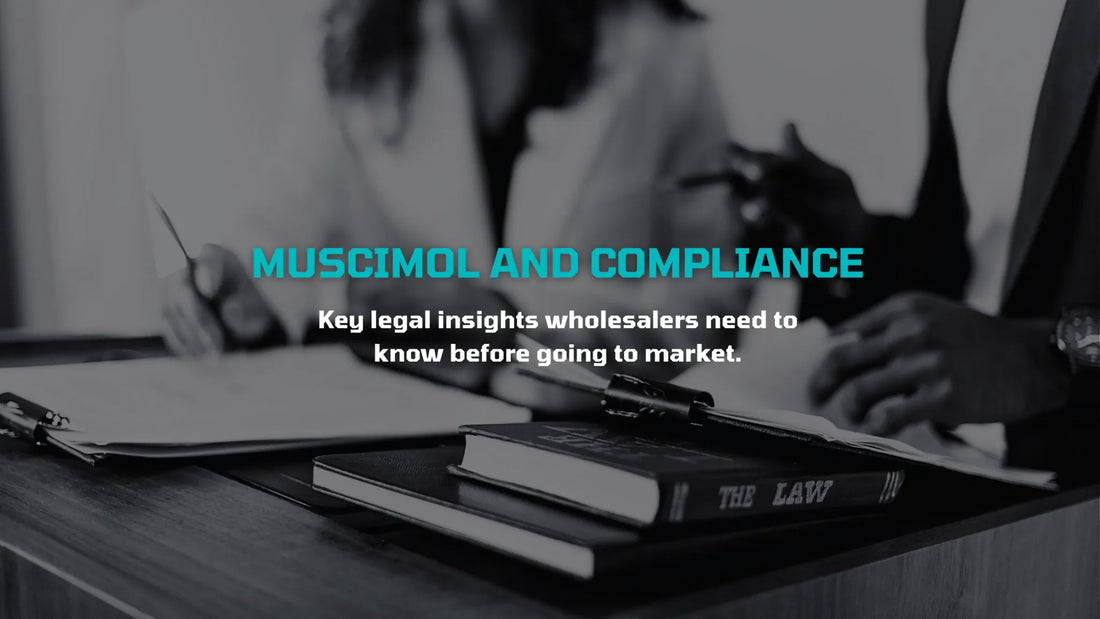
How to Navigate Legal and Regulatory Considerations When Selling Muscimol
Introduction
Anytime a new functional ingredient enters the market, wholesalers and retailers face the question of legality. Muscimol is no exception. While it is not a federally scheduled compound in the United States, businesses must still navigate regulations, labeling requirements, and international restrictions.
U.S. Regulatory Environment
In the United States, muscimol is not currently classified as a controlled substance. However, the Food and Drug Administration has not approved Amanita muscaria or its constituents for dietary supplements or food use. This creates a gray area that wholesalers must approach carefully. Transparent labeling and independent lab results help demonstrate product safety.
International Considerations
-
Australia: Muscimol is classified as a Schedule 9 prohibited substance, available only for approved medical or scientific use.
-
European Union: Regulations vary by country, with some markets being more restrictive than others.
-
Canada: Like the U.S., muscimol is not scheduled but has not been formally approved for use in food or supplements.
Wholesale distributors need to monitor local rules before shipping across borders.
Why Compliance Documentation Matters
For wholesalers, compliance is not only about staying within the law. It also builds trust with retail partners. Certificates of analysis, manufacturing records, and transparent supply chain practices show retailers that they can stock muscimol products confidently.
Preparing for the Future
As interest in muscimol grows, it is likely that regulatory agencies will continue to review its status. Wholesalers who prepare now with strong compliance practices will be better positioned to adapt as new guidance emerges.
